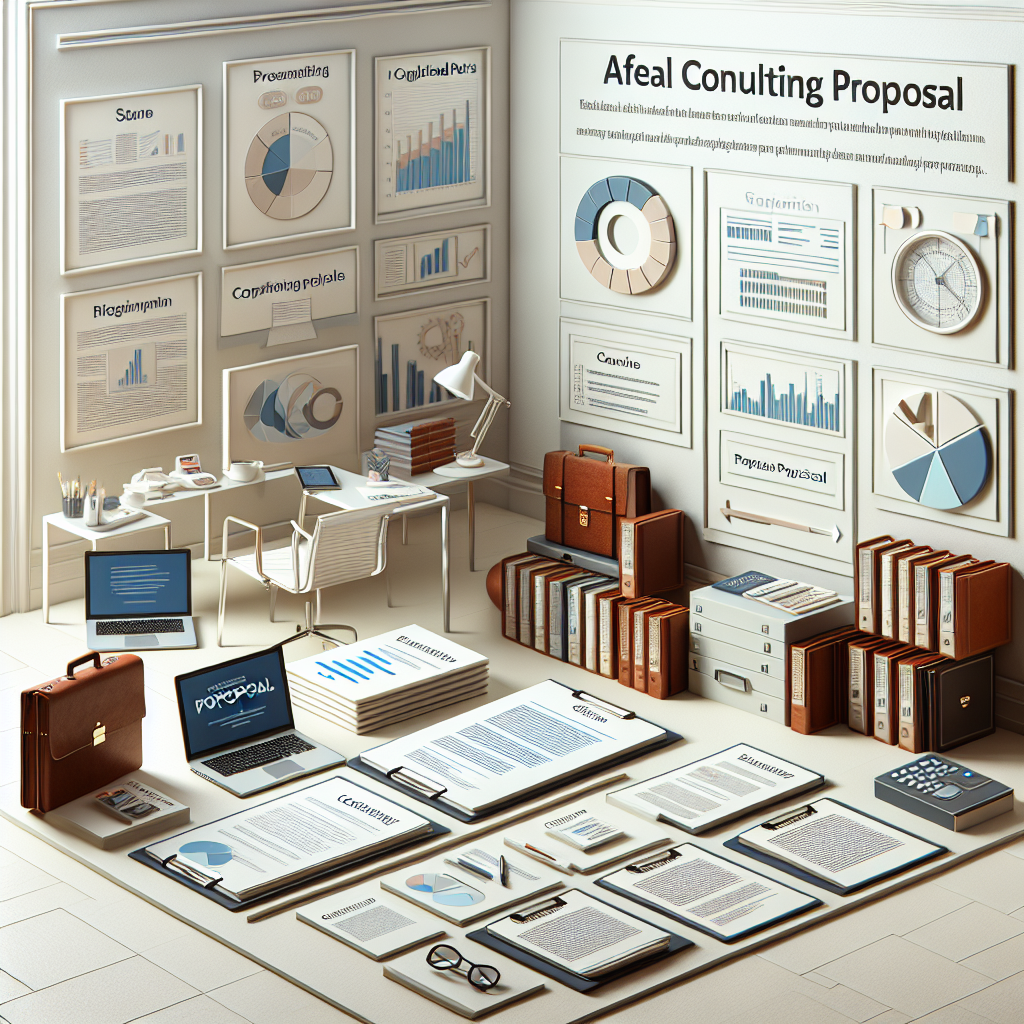Crafting the Ideal Consulting Proposal: Tools, Examples, and Template
“`html
Crafting the Ideal Consulting Proposal: Tools, Examples, and Template
In the competitive world of consulting, a well-crafted proposal can be the difference between winning a lucrative contract and missing out on a valuable opportunity. A consulting proposal is not just a document; it’s a strategic tool that communicates your understanding of the client’s needs, your proposed solutions, and the value you bring to the table. This article explores the essential components of an effective consulting proposal, provides examples and case studies, and offers a template to guide you in creating your own.
Understanding the Purpose of a Consulting Proposal
A consulting proposal serves multiple purposes. It is a formal offer to provide services, a demonstration of your expertise, and a persuasive document that convinces the client of your ability to deliver results. A successful proposal should:
- Clearly define the client’s problem or opportunity.
- Outline your proposed solution and methodology.
- Highlight your qualifications and experience.
- Provide a detailed timeline and budget.
- Include terms and conditions of the engagement.
Key Components of a Consulting Proposal
To craft an effective consulting proposal, it’s crucial to include the following components:
1. Executive Summary
The executive summary is a concise overview of the proposal. It should capture the client’s attention and summarize the key points, including the problem, proposed solution, and expected outcomes.
2. Problem Statement
Clearly articulate the client’s problem or opportunity. Use data and insights to demonstrate your understanding of their situation. For example, a case study from McKinsey & Company showed that clearly defining the problem increased proposal acceptance rates by 20%.
3. Proposed Solution
Detail your approach to solving the client’s problem. Include methodologies, tools, and techniques you will use. For instance, if you’re proposing a digital transformation strategy, mention specific technologies and frameworks.
4. Qualifications and Experience
Highlight your expertise and past successes. Include relevant case studies and testimonials. According to a survey by Consulting Success, 75% of clients consider past experience a critical factor in selecting a consultant.
5. Project Timeline and Budget
Provide a realistic timeline for project completion and a detailed budget. Transparency in pricing builds trust and sets clear expectations.
6. Terms and Conditions
Outline the terms of engagement, including payment terms, confidentiality agreements, and any other legal considerations.
Tools and Resources for Creating Proposals
Several tools can streamline the proposal creation process:
- Proposify: Offers customizable templates and analytics to track proposal performance.
- PandaDoc: Provides e-signature capabilities and integrates with CRM systems.
- Canva: Useful for designing visually appealing proposals.
Example of a Successful Consulting Proposal
Consider the case of a consulting firm that helped a retail company increase its online sales by 30%. The proposal included a detailed analysis of the client’s current e-commerce platform, a step-by-step digital marketing strategy, and a timeline for implementation. The client was impressed by the thoroughness and clarity of the proposal, leading to a successful partnership.
Consulting Proposal Template
Here’s a basic template to get you started:
- Title Page: Include your company name, client’s name, and proposal date.
- Table of Contents: List all sections for easy navigation.
- Executive Summary: Brief overview of the proposal.
- Problem Statement: Define the client’s issue.
- Proposed Solution: Outline your approach.
- Qualifications: Highlight relevant experience.
- Timeline and Budget: Provide details.
- Terms and Conditions: Specify engagement terms.
Conclusion
Crafting the ideal consulting proposal requires a strategic approach that combines clarity, persuasion, and professionalism. By understanding the client’s needs, presenting a compelling solution, and using the right tools, you can create proposals that not only win contracts but also build lasting client relationships. Remember, a well-structured proposal is your first step towards a successful consulting engagement.
“`




